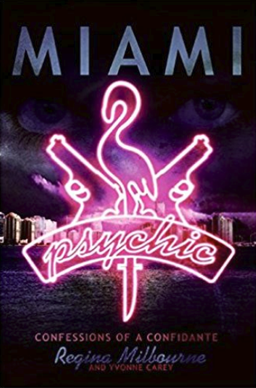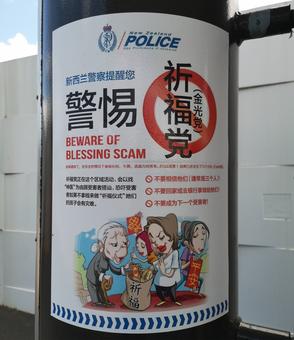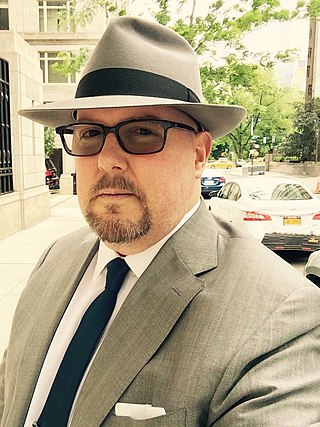
Fortune telling is the unproven spiritual practice of predicting information about a person's life. The scope of fortune telling is in principle identical with the practice of divination. The difference is that divination is the term used for predictions considered part of a religious ritual, invoking deities or spirits, while the term fortune telling implies a less serious or formal setting, even one of popular culture, where belief in occult workings behind the prediction is less prominent than the concept of suggestion, spiritual or practical advisory or affirmation.

A psychic is a person who claims to use powers rooted in parapsychology such as extrasensory perception (ESP) to identify information hidden from the normal senses, particularly involving telepathy or clairvoyance, or who performs acts that are apparently inexplicable by natural laws, such as psychokinesis or teleportation. Although many people believe in psychic abilities, the scientific consensus is that there is no proof of the existence of such powers, and describes the practice as pseudoscience. The word "psychic" is also used as an adjective to describe such abilities.

A scam, or a confidence trick, is an attempt to defraud a person or group after first gaining their trust. Confidence tricks exploit victims using a combination of the victim's credulity, naïveté, compassion, vanity, confidence, irresponsibility, and greed. Researchers have defined confidence tricks as "a distinctive species of fraudulent conduct ... intending to further voluntary exchanges that are not mutually beneficial", as they "benefit con operators at the expense of their victims ".

Youree Dell Harris was an Jamaican-American television personality and actress best known for portraying Miss Cleo, a spokeswoman for a psychic pay-per-call-minute service called Psychic Readers Network, in a series of television commercials that aired from 1997 to 2003. Harris used various aliases, including Ree Perris, Youree Cleomili, Youree Dell Harris, Youree Perris, Rae Dell Harris, Cleomili Perris Youree, and Cleomili Harris.

Internet fraud is a type of cybercrime fraud or deception which makes use of the Internet and could involve hiding of information or providing incorrect information for the purpose of tricking victims out of money, property, and inheritance. Internet fraud is not considered a single, distinctive crime but covers a range of illegal and illicit actions that are committed in cyberspace. It is differentiated from theft since, in this case, the victim voluntarily and knowingly provides the information, money or property to the perpetrator. It is also distinguished by the way it involves temporally and spatially separated offenders.
The Japanese sect Ho No Hana Sanpogyo was a new religious movement founded by "His Holiness" Hogen Fukunaga. The sect was found to have engaged in fortune telling fraud in Japan.
Affinity fraud is a form of investment fraud in which the fraudster preys upon members of identifiable groups, such as religious or ethnic communities, language minorities, the elderly, or professional groups. The fraudsters who promote affinity scams frequently are – or successfully pretend to be – members of the group. They often enlist respected community or religious leaders from within the group to spread the word about the scheme, by convincing those people that a fraudulent investment is legitimate and worthwhile. Many times, those leaders become unwitting victims of the fraudster's ruse.

Gina Marie Marks is an American psychic and convicted fraudster. Using the pseudonym of Regina Milbourne, she co-authored Miami Psychic: Confessions of a Confidante, a memoir published by HarperCollins in 2006.

Miami Psychic: Confessions of a Confidante is a 2006 memoir published by the Regan Books division of HarperCollins. The authors are listed as Regina Milbourne and Yvonne Carey-Lederer.

A psychic reading is a specific attempt to discern information through the use of heightened perceptive abilities; or natural extensions of the basic human senses of sight, sound, touch, taste and instinct. These natural extensions are claimed to be clairvoyance (vision), clairsentience (feeling), claircognisance and clairaudience (hearing) and the resulting statements made during such an attempt. The term is commonly associated with paranormal-based consultation given for a fee in such settings as over the phone, in a home, or at psychic fairs. Though psychic readings are controversial and a focus of skeptical inquiry, a popular interest in them persists. Extensive experimentation to replicate psychic results in laboratory conditions have failed to find any precognitive phenomena in humans. A cold reading technique allows psychics to produce seemingly specific information about an individual from social cues and broad statements.
The Maria Duval scam is one of the most successful mail scams in history, having defrauded millions of people out of at least $200 million over twenty years. Targeting sick and elderly people through a combination of personalized letters and personal information databases, it has been shut down in the United States in 2016, but is still ongoing in many countries.

Mark Edward was an American mentalist and author. He wrote books on mentalism and séance theory and production, including Psychic Blues (2009), where he discussed working for the Psychic Friends Network. Wilson made appearances on television as both primary consultant and on-air performer in programming such as ABC's The Con, A & E's Biography: "Houdini, the Great Escape", NBC's The Other Side, and Psychic Secrets Revealed, the Sci-Fi Channel's Mysteries, Magic and Miracles, Disney's Forces Beyond, as well as two episodes of the Learning Channel's Exploring the Unknown. His featured segment as a spirit medium on the pilot episode of Showtime's Penn & Teller's Bullshit! series, titled "Speaking with the Dead", helped secure an Emmy Award nomination for that episode in 2002. He coined the term "grief vampire" as a description of alleged psychic mediums who prey on vulnerable people. Edward was a fellow with the Committee for Skeptical Inquiry.

The blessing scam, also called the ghost scam or jewelry scam, is a confidence trick typically perpetrated against elderly women of Chinese origin. The scam originated in China and Hong Kong and victims have fallen to it worldwide including in Chinatowns and overseas Chinese communities. The object of the scam is to persuade the victim to put valuables into a bag, which the perpetrator then secretly swaps for a different bag, enabling them to take the valuables.
Rose Marks is the American matriarch of a family of fraudulent psychics convicted of federal crimes in 2013 in Florida. Marks and members of her extended family operated multiple storefront businesses, four in Broward County, Florida one of which was in Fort Lauderdale, named "Astrology Life" and one in Manhattan on W. 58th Street near Central Park. They told vulnerable clients that the only solution to their problems was to give the purported psychics money. Prior to this case there was doubt that a psychic could be criminally charged. Jurors were told that fortune-telling is constitutionally protected free speech, but federal prosecutors contended Marks engaged in fraud by promising to keep clients' money safe, "cleanse" it and return it when she had no intention of returning it. The case drew widespread coverage. Charles Stack, a retired Fort Lauderdale police detective, said the case and the ensuing publicity brought attention to predatory and fraudulent fortune tellers.

Bob Nygaard is an American private investigator (PI) specializing in the investigation of confidence crimes, most notably psychic fraud. He has been instrumental in the arrest and conviction of numerous psychics, helping their victims obtain justice including financial restitution amounting to millions of dollars. He has consulted for ABC News and 20/20 as a specialist in psychic fraud. Nygaard previously was a member of the New York City Transit Police and Nassau County Police Department, retiring from service in 2008.
Janet Lee, also known as the Greenwich psychic and the Bedford psychic, is an American psychic based in Bedford Hills, New York. She has been working as a psychic since the late 1990s and says she was born with the gift. Her specialities include psychic readings, tarot card readings and past life readings.

David Peter Bloom is a twice convicted American fraudster who defrauded investors of almost $15 million in the 1980s.
The National Network of Lawyers Against Spiritual Sales is a non-profit anti-cult association established in May 1987, comprising about 300 lawyers in Japan. It is specialized in providing legal assistance for victims of cult-related frauds, known as spiritual sales (霊感商法) in Japan, from religious organizations, primarily the Unification Church (UC), as well as advocating preventive measures against the malpractices.












